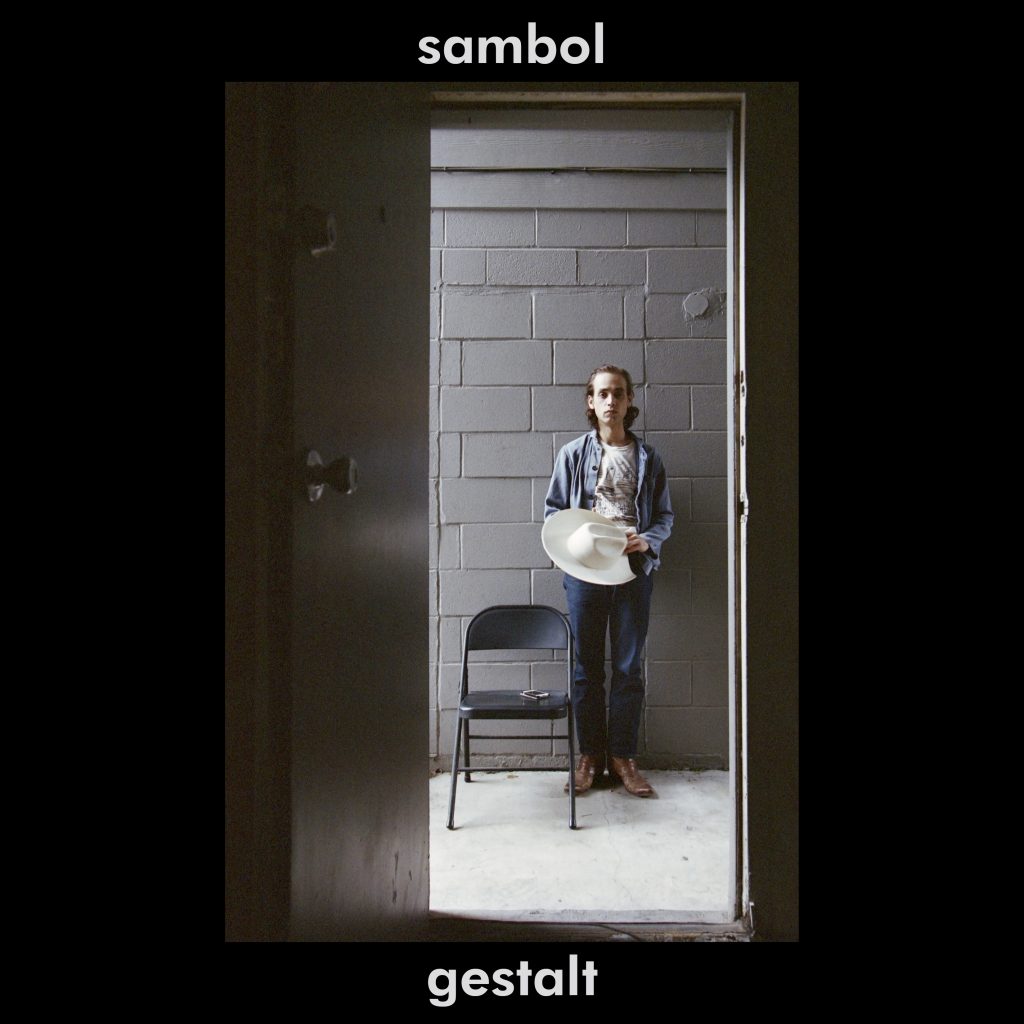
Gestalt is the newest album from Texas-based musician and poet Ryan Sambol. Following his work with The Strange Boys, Living Grateful, and The Interstate Group, this record refines the country-folk sound of previous solo releases Now Ritual (2015) and Rail Sing (2020) in a stark work of personal and musical pruning. Although written for the road and full accompaniment, these nine tracks were recorded in relative isolation, often tracked live, and reflect the sometimes painful, often bemusing process of self-examination. The result is a singular document of a songwriter honing his craft—observing, thinking, and creating.
True to its name, Gestalt is a work of unified parts. Sketches of life in Texas, reflections on fame and fortune, notes to self and everyone else, the songs collected here range in mood from biting and bitter to decidedly hopeful. But each track finds a place in a grander scheme, joined by the record’s uncrowded instrumentation and lonesome origins. On opener “You’re Still Loveable to Someone,” Sambol finds a bit of unsettling perspective in contrasting his own art against the vastness of geological time: “I hope I have something special when I was handed a four-hundred-million-year-old stone.” The album is full of such wry reflections about the possibility of authentic expression, the Sisyphean task of living up to your calling, and the challenge of making music for a living, from the lovelorn recollections of the shimmering “Just Like Golden Hours” to the harried inquiries of spacious tracks like “There Are Things To Be Doing” and “Different Sky.” These tunes, like the others, work from a careful palette, placing distant keys against a quiet electric hum or centering the chime of a lone guitar. They are songs made of moments, calling attention to the odd detail, to the fret-scratches and pauses between words.
The sum of these songs is an image of an artist at work. Sambol captures the humdrum and boring moments of the poet’s life—the hours spent on the phone, days of staring at a wall—as thoroughly as he does the joy of performing and the pathos of self-expression. It is a complex, uncompromising view that seeks to temper blame with gratitude and regret with vision. Under a solitary arpeggio, he imprints closer “His Aim” with some wisdom of the wounded variety: “I’ve stopped guessing out loud.” That is good advice for these times, but a better comment on the paths of discovery taken on Gestalt.
-John Schneider of Penn State University
